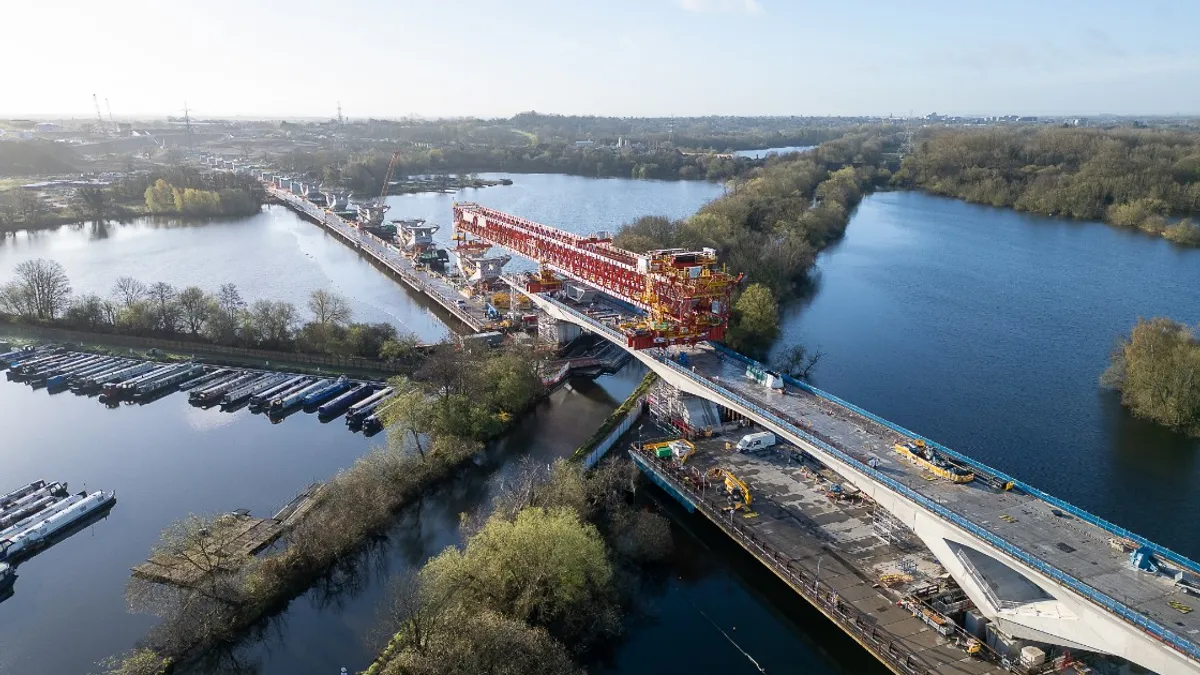Editor's Note: The following is a guest contribution from Elan Parra, managing director of Lemire LLC, a New York City-based compliance and risk management firm.
Managing potential fraud is a fact of life in many industries, but it’s especially true in construction. While the good guys far outnumber the bad, if you own or manage a construction business, it’s likely that you will encounter fraud at some point eventually. When it happens, having a few simple measures in place can save your company from irreparable damage.
Despite its prevalence, fraud can be tricky to detect, especially for new businesses that may not have experience encountering the different types of fraud that can infiltrate a job site. But ignorance is no excuse when regulators come knocking and your company’s reputation is on the line.
An upsurge in construction nationwide means an inevitable crackdown on fraud, corruption and waste in the construction industry by regulators.
One example of a costly civil action was the Department of Labor’s crackdown last year on two Massachusetts-based construction companies — and two of their employees — after discovering that the firms had been misclassifying their employees as independent contractors. The result? A consent judgment ordering the companies to pay $2.4 million in back wages and liquidated damages to nearly 500 employees, to comply fully with the FLSA, to maintain accurate timesheets and wage records, and to engage at least one independent consultant to develop a payroll compliance system.
Fraudulent practices also have the potential to result in criminal prosecution. In Chicago, a contractor was recently convicted of four counts of fraud after allegedly allowing two other major contractors to use her company’s name to meet citywide minority- and women-owned business (MWBE) procurement goals. In 2014, a different Chicago-based construction firm was ordered to pay $12 million to settle claims that the company defrauded the government on procurement projects designed to benefit MWBE subcontractors. The consequences of engaging in or overlooking fraud are real and are heating up with increased government attention on today’s construction boom.
In many jurisdictions, the law already requires that general contractors have measures in place to ensure that subcontractors are not engaging in illegal activity. Construction companies are increasingly expected to monitor and investigate potential criminal activity. With that in mind, here are some easy-to-implement measures that can be employed by any company to stave off potential fraud.
1. Make due diligence screening a requirement for any company you choose to do business with. Perform background checks on subcontractors and principals looking for tax liens, judgments and other violations. Even simple Google searches can turn up potential red flags. Also, take time to learn their business structure. For instance, are there subsidiary companies that help shield principal identities? In other words, make sure you know who you’re really doing business with, including long-standing business partners who may also pose a risk.
Trusting prior business relationships without having continuous due diligence or auditing practices in place could prove to be especially dangerous. This is the classic "wolf in sheep’s clothing" scenario. Unfortunately, it is not uncommon to overlook the risk of fraud or regulatory violations based on a prior relationship. As businesses change, so do their practices, cultures and associations. A prior relationship shouldn’t be the only litmus test.
2. Designate a chief compliance officer to manage your due diligence efforts and to conduct regular, ongoing reviews. Your compliance officer should report directly to the ownership or board of directors, which ensures accountability while also sending the message that you place great importance on compliance. A direct line to the top prevents facts from getting muddled before action may be taken to rectify an issue. But it’s not enough to simply have a titleholder.
3. Among other important audit practices, compliance officers should be empowered to analyze payroll, invoices and contracts, and they should have access to everyone on the job site. That means going into the field to speak with workers, keeping thorough records (preferably electronic), establishing rapport with subcontractors, and ensuring an anonymous method for anyone in the company to report suspected fraud, waste or illegal activity. If you are looking to hire a compliance officer from within the company, consider various training opportunities to expand your officer’s knowledge of interview techniques, audit practices and new and changing laws, rules and regulations. These efforts will allow your compliance officer to be fully dedicated to identifying fraud and waste on the job, which ultimately will help your company’s bottom line.
Construction managers should be cautious, however, when selecting a chief compliance officer. You do not want to have just one person looking over all the books and making important decisions on compliance. Develop a system with your owners or board of directors to ensure checks and balances, evaluate the integrity of your program and identify areas for improvement. This should involve periodic audits and assessments of internal controls, as well as contract provisions requiring subcontractors to submit to your compliance program.
4. To that end, it’s worth consulting with experienced compliance professionals who can help establish compliance protocols, especially if you’re first setting out to implement them. Seasoned specialists can help you put the right system in place and eliminate much of the guess work.
5. Finally, make sure everyone in your organization clearly understands the consequences of engaging in or overlooking fraud, including debilitating fines, potential debarment, and most importantly, reputational harm to the company. Litigation costs big money, and violations could ultimately land you in court.
Nearly everything in the construction industry centers on risk. Simply put, detecting fraud is a variable that must be part of your risk calculus. Implementing these relatively simple steps upfront can help you protect your reputation and ultimately ensure the integrity of your bottom line over the long run.




















